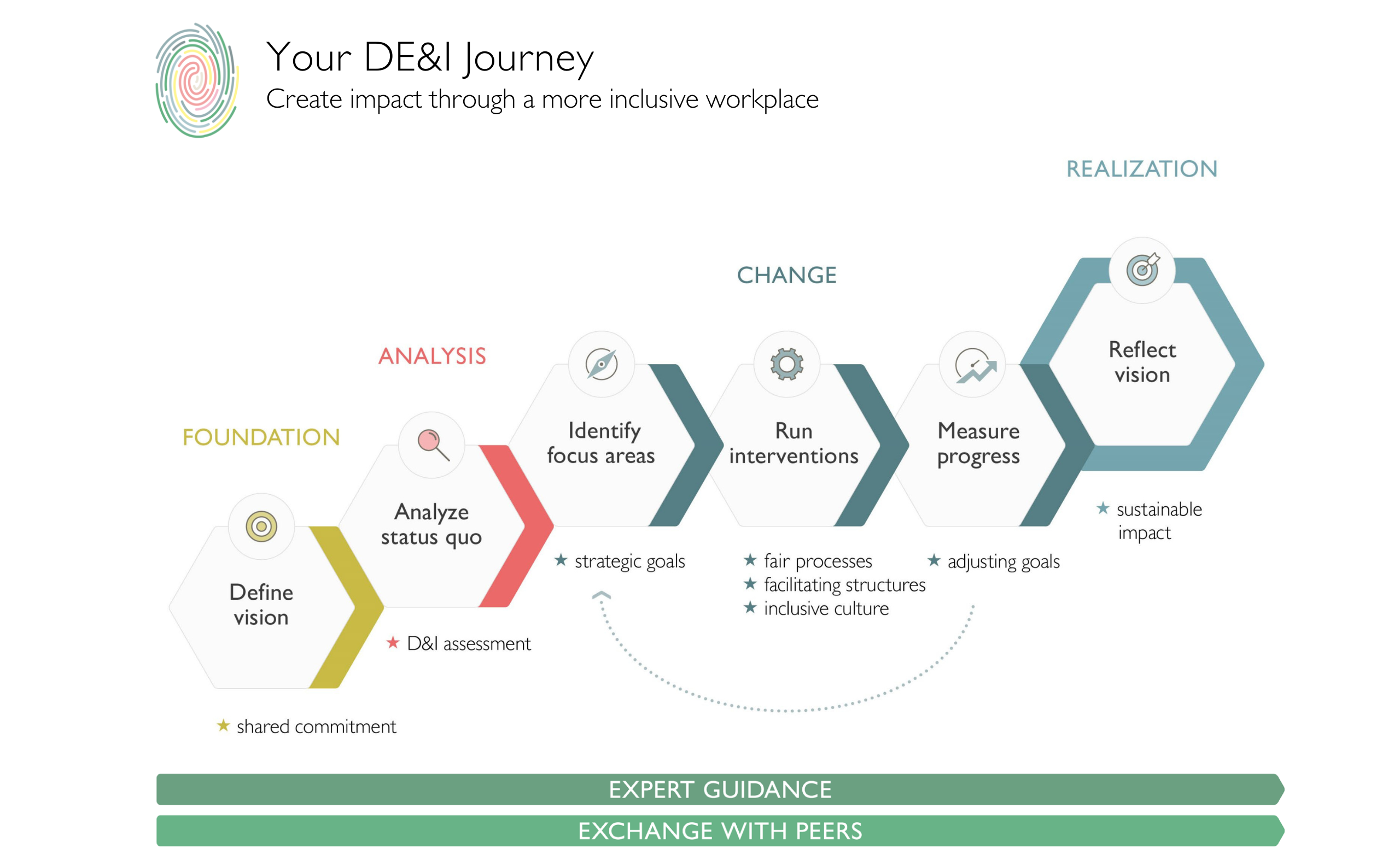What is D&I?
Diversity and inclusion (D&I) management is the task of dealing with the variety and heterogeneity of employees in a meaningful way that benefits all.
Effective D&I management begins by differentiating between various forms of diversity. It is important to consider that surface-level features such as gender, age, and ethnicity as well as experience-related characteristics such as functional expertise, education and international experience can have varying influences on the performance of teams and organisations.
D&I management is about gaining a proper understanding of the unique dynamics of diversity within an organisation and then addressing them in a strategic way in order to promote inclusion, innovation, and learning and to avoid discrimination due to stereotypes. Only through attention to individual differences and the establishment of a culture of inclusion can diversity be translated into an opportunity and resource for both the company and its employees.
What are the benefits of diversity?
Our research shows that diversity can mainly offer three benefits to organisations.
First, diversity promotes variety in knowledge and perspectives that, in turn, can help teams to effectively deal with task complexity and enhance innovation, productivity, and performance.
Second, diverse teams possess non-overlapping networks that link the firm with its external environment and provide access to new resources, ideas and opportunities.
Third, by building diverse teams at all levels of the organisation, firms can encourage a culture of inclusion and signal to stakeholders that their organisation values the right to equal opportunities.
OUR APPROACH
YOUR DE&I JOURNEY - CREATE IMPACT THROUGH A MORE INCLUSIVE WORKPLACE
A SYSTEMATIC APPROACH FOR YOUR INDIVIDUAL DE&I JOURNEY.
The DE&I Journey is a customized approach that supports your company in creating sustainable change in Diversity, Equity & Inclusion (DE&I). We follow a systematic approach that ensures successful DE&I management: DE&I is recognized as a strategic issue and therefore connected to corresponding goals. Your company has secured the financial and human resources necessary to make these goals reality. Finally, DE&I is considered in all decisions and processes and managers are responsible for implementing the agreed-upon DE&I objectives. The success and impact of DE&I is regularly reviewed and made transparent so that your organization can achieve the desired impact. With the DE&I experts from the CCDI and Leaders4Equality, you have partners at your side who have profound knowledge from practice as well as from cutting-edge research.
Your benefits:
Individual approach
You have a customized approach within a clear framework.
Professional support
You are in continuous exchange with experts.
Sustainable changes
You continuously measure progress.
Visible commitment
You show your commitment with the DE&I Journey Label.
WE ARE HAPPY TO ANSWER YOUR QUESTIONS AND PROVIDE YOU WITH A NON-BINDING OFFER

Theresa Goop, M.A. HSG, M.Sc.
MEMBER OF CCDI MANAGEMENT TEAM & SENIOR PROJECT MANAGER
+41 71 224 72 48

Dr. Ines Hartmann
DIRECTOR CCDI & SENIOR PROJECT MANAGER
+41 71 224 24 18 oder +41 76 572 15 43

NICOLE NIEDERMANN, M.SC
MEMBER OF CCDI MANAGEMENT TEAM & SENIOR PROJECT MANAGER
+41 71 224 71 56



